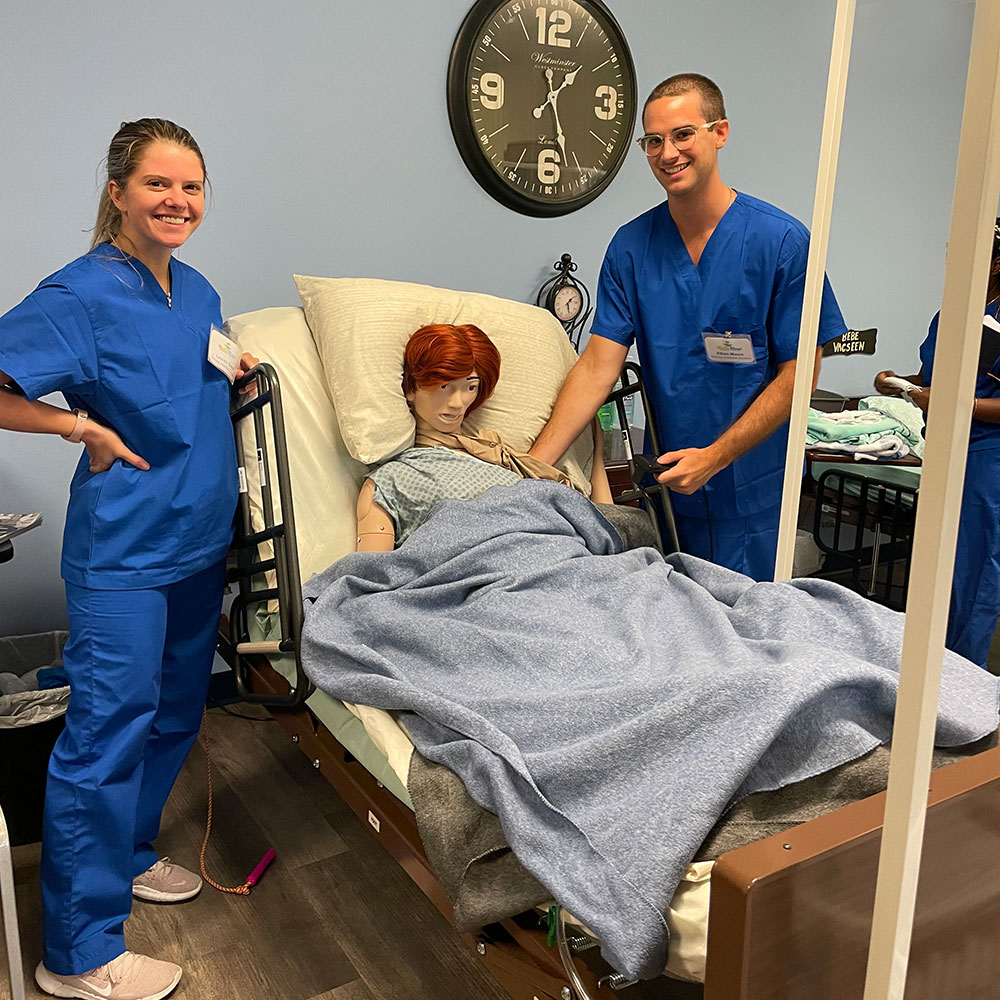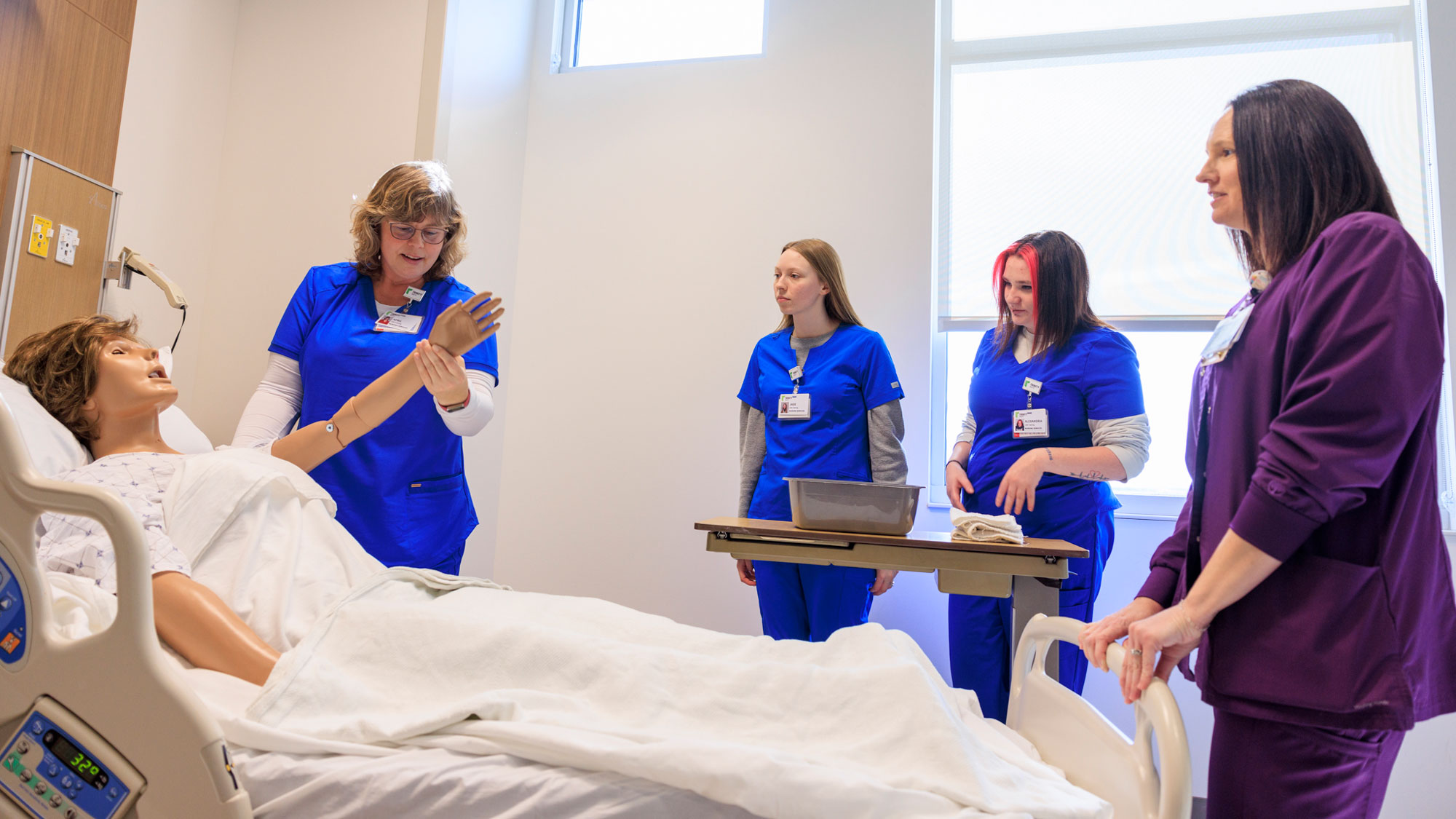CNA Classes and Career Growth: What Comes Next?
Wiki Article
Just How CNA Courses Can Help You Introduce a Successful Occupation in the Clinical Field
CNA classes function as a foundational stepping stone for individuals desiring enter the medical area (CNA Classes). These programs convey important skills, including effective communication and individual treatment strategies. Trainees involve in hands-on training, connecting theory with useful application. As the need for healthcare professionals grows, the duty of a Qualified Nursing Aide ends up being progressively considerable. This raises questions concerning the different occupation paths and development possibilities that exist ahead for those who complete their trainingComprehending the Role of a Qualified Nursing Assistant
The role of a Licensed Nursing Aide (CNA) is important to the health care system, acting as an important web link in between clients and clinical personnel. CNAs mainly aid individuals with everyday tasks such as bathing, dressing, and consuming, ensuring their convenience and dignity. They are often the very first point of call for individuals, giving vital emotional assistance and companionship. In enhancement to personal treatment, CNAs are accountable for monitoring individuals' vital signs, reporting modifications in condition to nursing team, and preserving person records. Their jobs extend to making sure cleanliness in individual settings and helping with flexibility. This role requires a thoughtful disposition, solid interaction skills, and the capability to function efficiently under pressure. By facilitating a smooth process within medical care setups, CNAs play a considerable part in improving the overall person experience and supporting the wider medical team in supplying high-quality care.Key Skills Obtained in CNA Courses

Additionally, CNA programs emphasize personal treatment abilities, incorporating support with everyday living tasks such as showering, dressing, and feeding. CNA Classes. Infection control techniques are another crucial component, guaranteeing that trainees comprehend just how to keep a secure environment for both clients and themselves
Pupils obtain expertise in standard medical terminology, helping with much better understanding of health care methods. Time monitoring abilities are cultivated to aid CNAs focus on tasks efficiently. In general, these essential skills form the structure for an effective job in the clinical field, preparing trainees to meet the diverse demands of people.
The Advantages of Hands-On Training
Getting sensible experience via hands-on training is crucial for aiming CNAs, as it connects the space between academic understanding and real-world application. This immersive knowing method enables pupils to establish essential skills required for individual treatment, such as effective interaction, compassion, and technical abilities. Taking part in real-life situations enables trainees to comprehend the characteristics of a health care environment, fostering confidence in their capabilities.Hands-on training aids trainees come to be familiar with crucial devices and procedures, guaranteeing they are well-prepared for the challenges of the task. It likewise gives opportunities to get immediate comments from instructors, improving the finding out experience. By functioning straight with clients under guidance, aspiring CNAs can refine their empirical skills and find out to react to various circumstances properly. Inevitably, hands-on training equips these future healthcare experts with the competence and guarantee necessary to succeed in their functions.
Job Opportunities After Becoming a CNA
Many job opportunities await people that finish their CNA training, opening up doors to different functions in the medical care sector. Certified Nursing Assistants (CNAs) are necessary participants of the medical care team, offering direct individual treatment in setups such as medical facilities, nursing homes, and helped living centers. Their duties can consist of aiding with daily living activities, keeping an eye on important indications, and providing psychological assistance to individuals.Beyond traditional settings, CNAs may also find possibilities in specialized locations, such as rehab facilities or home wellness treatment. In addition, some may change right into roles in management assistance or person campaigning for, leveraging their direct experience with individuals. The need for CNAs remains to grow, driven by an aging population and an increased concentrate on high quality patient treatment. This high need assurances that individuals entering the area have a variety of alternatives to seek, making it an appealing entrance point right into a fulfilling profession in medical care.
Pathways for Development in the Healthcare Area
Improvement in the from this source healthcare area uses several pathways for individuals seeking to boost their jobs beyond the role of a Qualified Nursing Assistant (CNA Classes). After gaining experience, several CNAs choose to pursue more education and learning and certifications, such as becoming a Certified Practical Nurse (LPN) or Registered Nurse (REGISTERED NURSE) This shift usually includes enrolling in linking programs that her comment is here recognize their present skills
Additionally, continuous specialist advancement via workshops and seminars can maintain CNAs updated on market standards, making them extra affordable candidates for innovation. The medical care field supplies various methods for development, enabling CNAs to shape their job trajectories successfully.
Regularly Asked Inquiries
For How Long Do CNA Courses Generally Take to Total?
CNA courses commonly take between four to twelve weeks to finish, depending on the program structure. Aspects such as course intensity, scheduling, and the establishment's educational program design can influence the general period of training.What Is the Cost of CNA Training Programs?
The cost of CNA training programs varies commonly, commonly ranging from $300 to $2,000. Elements affecting this price consist of location, program length, and whether the training is offered via area universities or exclusive organizations.Are Online CNA Courses Available?

What Is the Certification Test Process Like?
The accreditation test procedure generally includes a written examination evaluating understanding and an abilities demo. Prospects must pass both elements to end up being qualified, guaranteeing they meet the required competencies required for nursing assistant functions.Do I Need Previous Health Care Experience to Register in CNA Classes?
Prior next medical care experience is not a requirement for signing up in CNA courses. People from different backgrounds can go into the program, as it is designed to supply detailed training and expertise needed for successful certification and technique.Report this wiki page